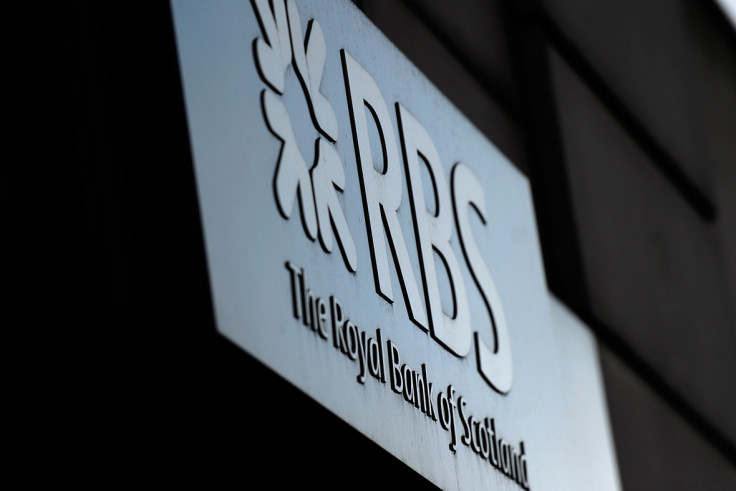RBS: We became 'one of the least trusted businesses in the least trusted industry in the world'

Royal Bank of Scotland has admitted it failed 17 million customers by becoming one of the "least trusted businesses in the least trusted industry in the world".
Andrew McMullan, RBS' head of Personal & Business Banking, conceded the embattled bank had been guilty of "taking its eye off the ball" during the financial crisis.
He pledged to return to the high street bank image of the 1970s and 1980s – when a bank manager would know the name of customers and offer a far more personalised service.
"Before the financial crisis, RBS was the biggest bank in the world and it is fair to say we probably took our eyes off the ball a little," he told IBTimes UK.
"Customers lost faith in us and some considered us the least trusted business in the least trusted industry in the world."
The FTSE 100 lender, which was rescued in a £46bn (€58.3bn, $66.6bn) bailout during the financial crisis and has not posted a profit since 2007, has also been beset by technical issues.
In June 2015, approximately 600,000 RBS account transfers were affected by a technical glitch, which caused payments to be delayed for days. Seven months earlier, the bank was fined a total of £56m by the Financial Conduct Authority and the Prudential Regulation Authority after a 2012 software upgrade meant customers were unable to withdraw cash from ATMs. Some of those affected faced fines for late payment of bills, as the system could not process direct debits payments. It later emerged that the software had been corrupted by RBS technical staff.
In response, the bank is now rolling out an ambitious plan to restore its credibility in the UK and to achieve its aim of being Britain's number one bank for customer service and trust within the next four years.
'Committed to regain trust'
McMullan said he was committed to re-engaging with its customers and restoring a relationship with those who had lost faith in the bank, adding it was vital staff had the data capabilities to identify what could make a difference with the customers.
"In the 1970s and 1980s, bank staff in almost every branch would know their customers and they would ask them about their families, kids and so on," he told IBTimes UK.
"We want to ensure the same kind of relationship exists between our customers and our staff now."
To this end, RBS has joined forces with analytics and software provider SAS. In April it launched a platform that enables analysis of large data sets related to its customers. The bank believes that by analysing and understanding its data better, employees and customers will have "more personalised and valuable conversations" be it online, face-to-face or over the phone, resulting in improved customer experience.
The bank analyses customer data on their short-term lending to ensure they are not paying more on interest, fees and charges than they should be.
A RBS spokesman said: "If customers have an overdraft, a credit card and a loan it's probable that the combination of interest and/or fees and charges are more than they could be if the customer had the best product for their needs with the best rates we have available.
"We contact all these customers to let them know we could save them money and on average can save customers over £1,000 a year."
The scheme, which was initially rolled out to over 10,000 users with plans already in place to extend it to all RBS, Natwest and Ulster Bank customers in the coming months, has been met with widespread approval by RBS staff, McMullan said.
"We got a lot of feedback from our staff, as they are those who deal with customers every day," he said.
"And the response has been really positive. A lot of them pointed out how too often technology had got in the way of dealing with customers in the past."
RBS, which has invested £750m since 2012 to improve the resilience of its systems, added it was not only aiming to solve customers' issues, but also to improve the process leading to the solution.
Asked if more banks would follow suit and adopt a more hands-on approach to strengthen the relationship with their customers, Mc Mullan said: "Banks have to put customers first and have to take the time to do so. RBS's biggest challenge was, and still is, regaining the customers' trust. Banks have to realise the long-term benefits of spending time to understand their customers are worth the investment."
© Copyright IBTimes 2025. All rights reserved.






















